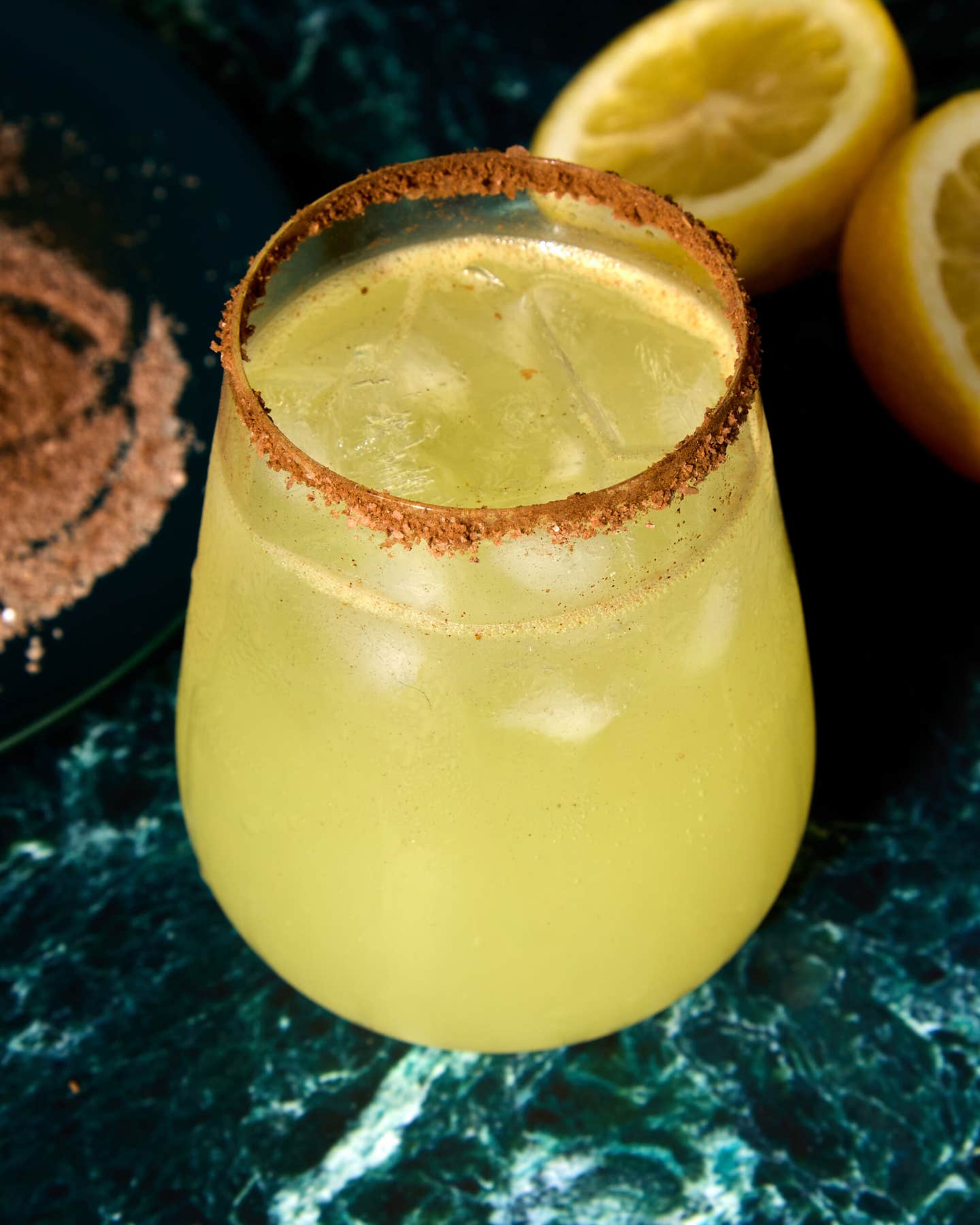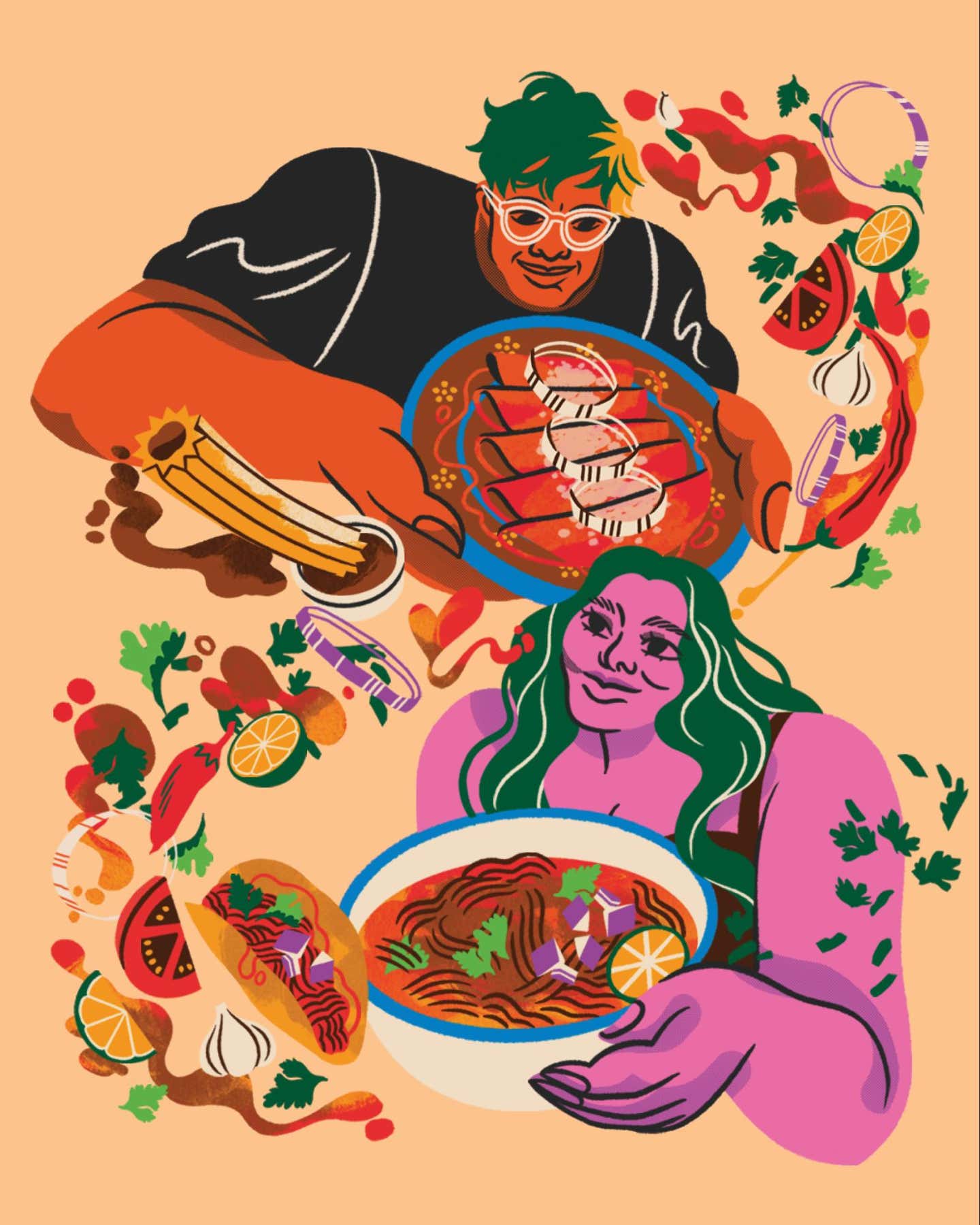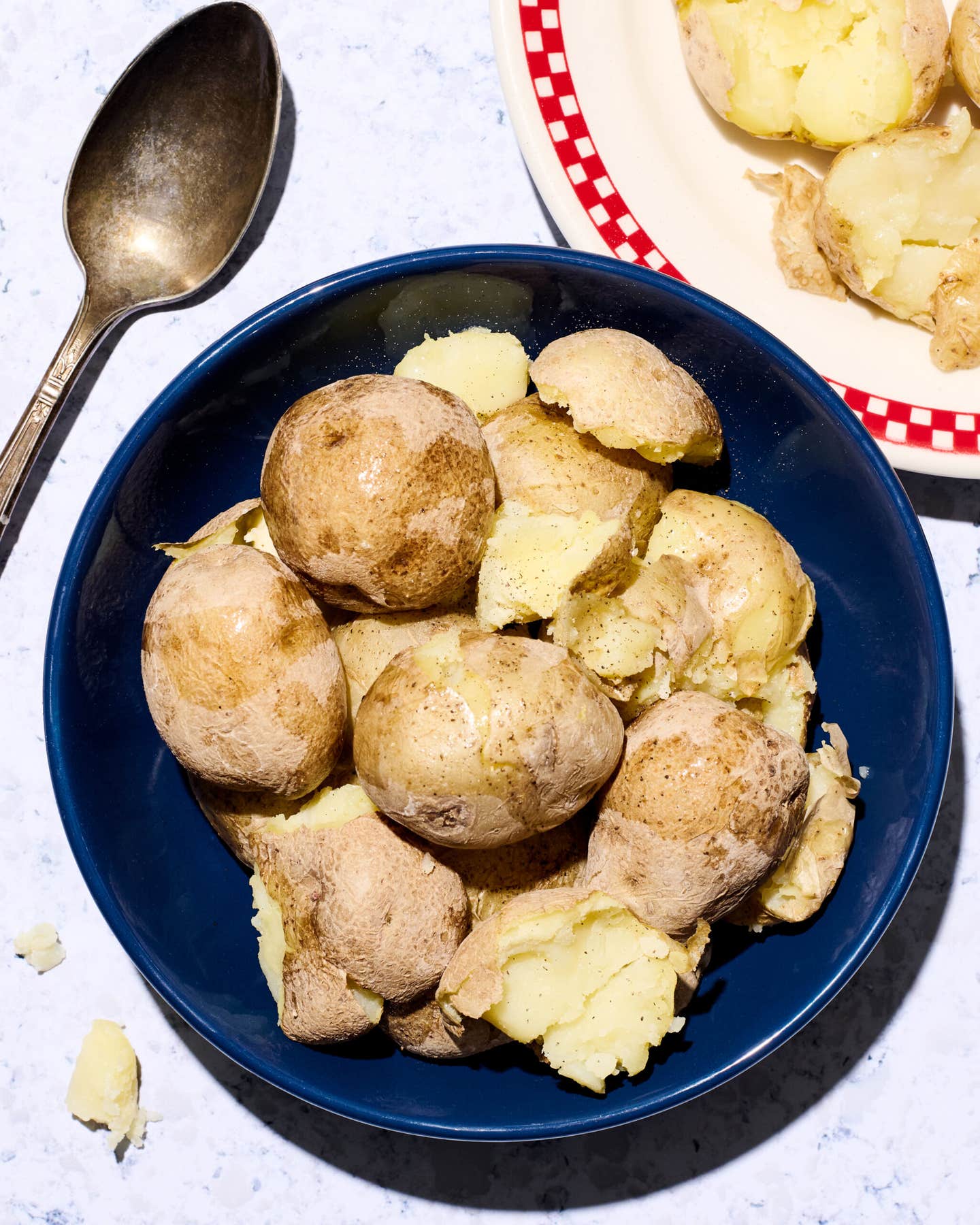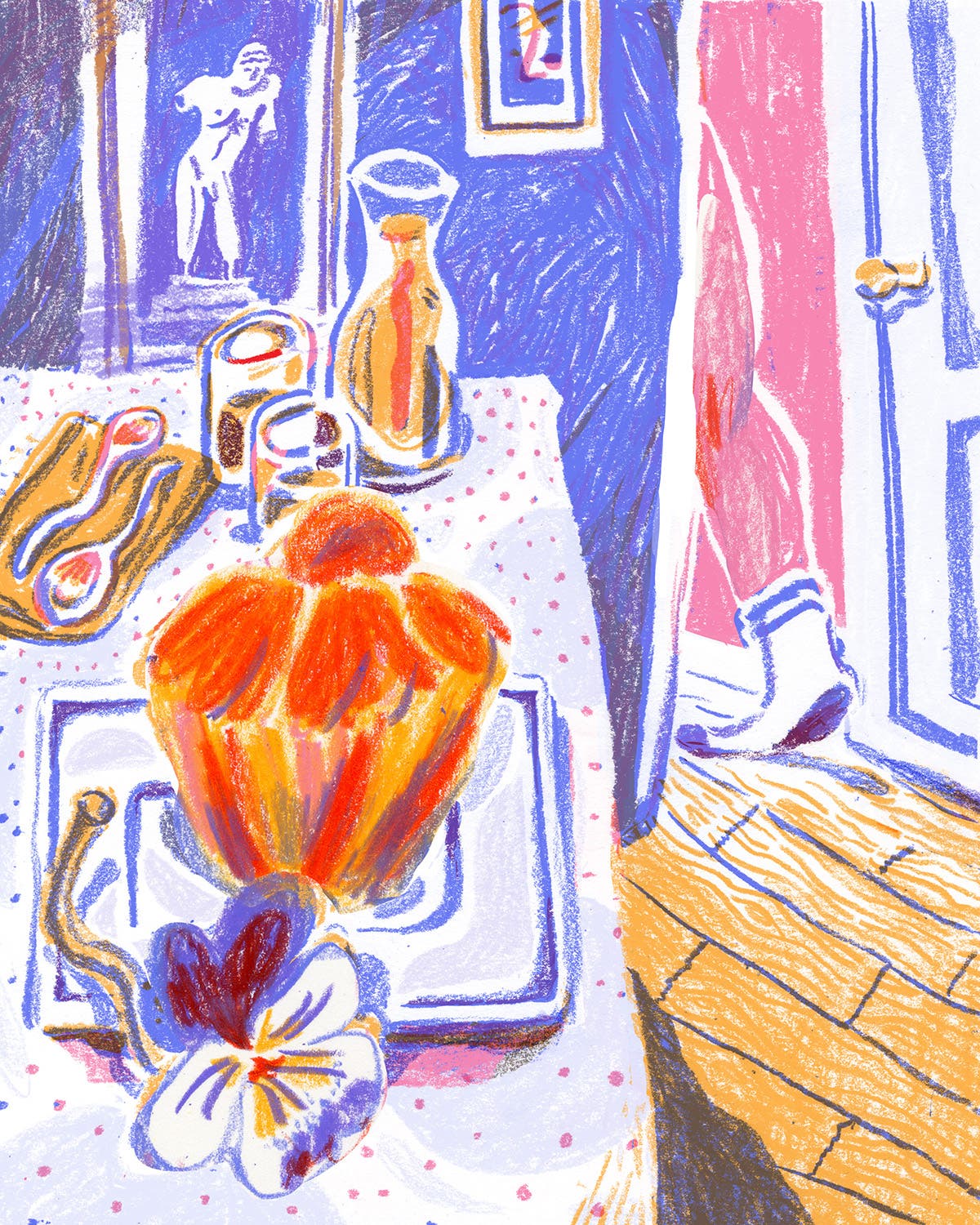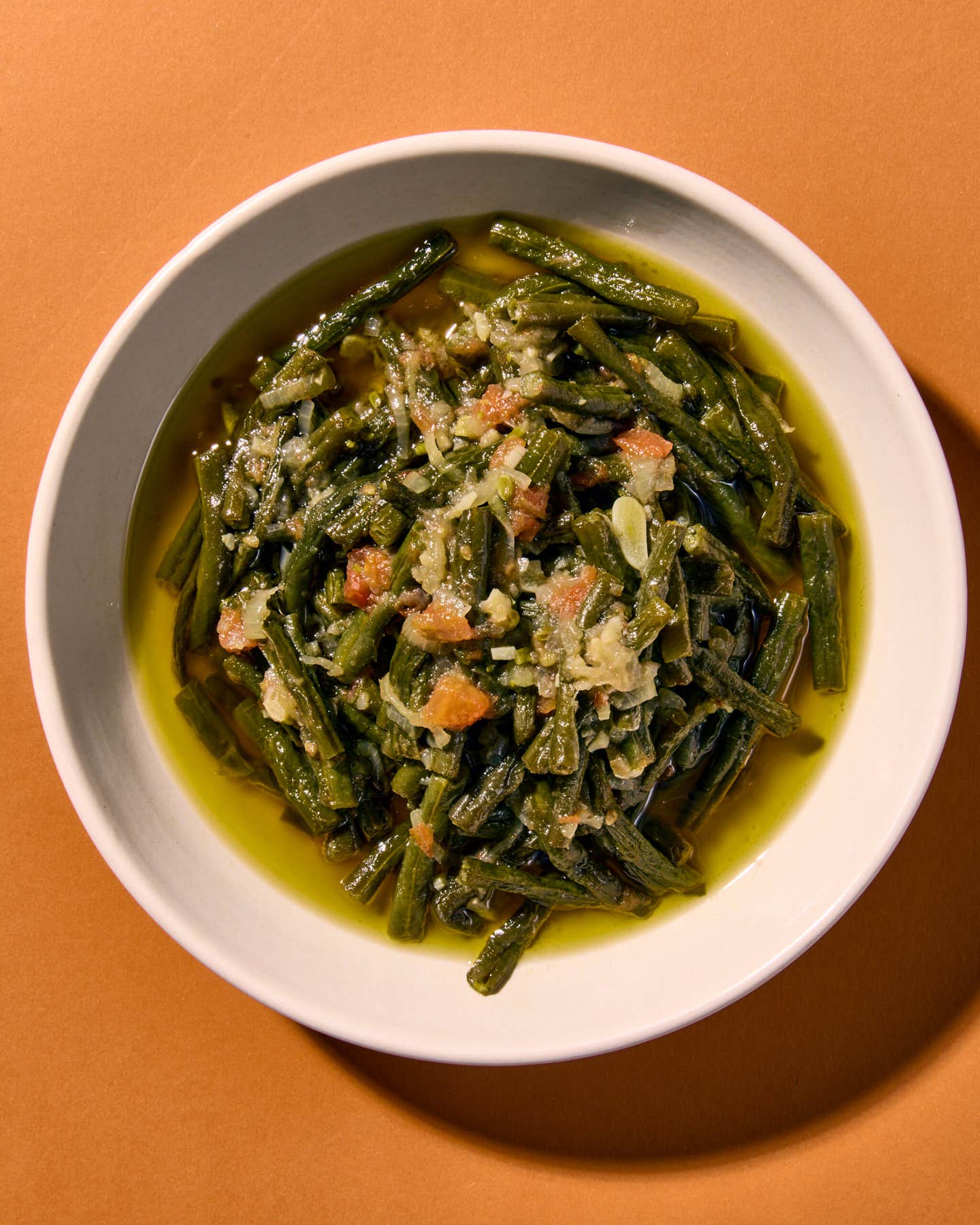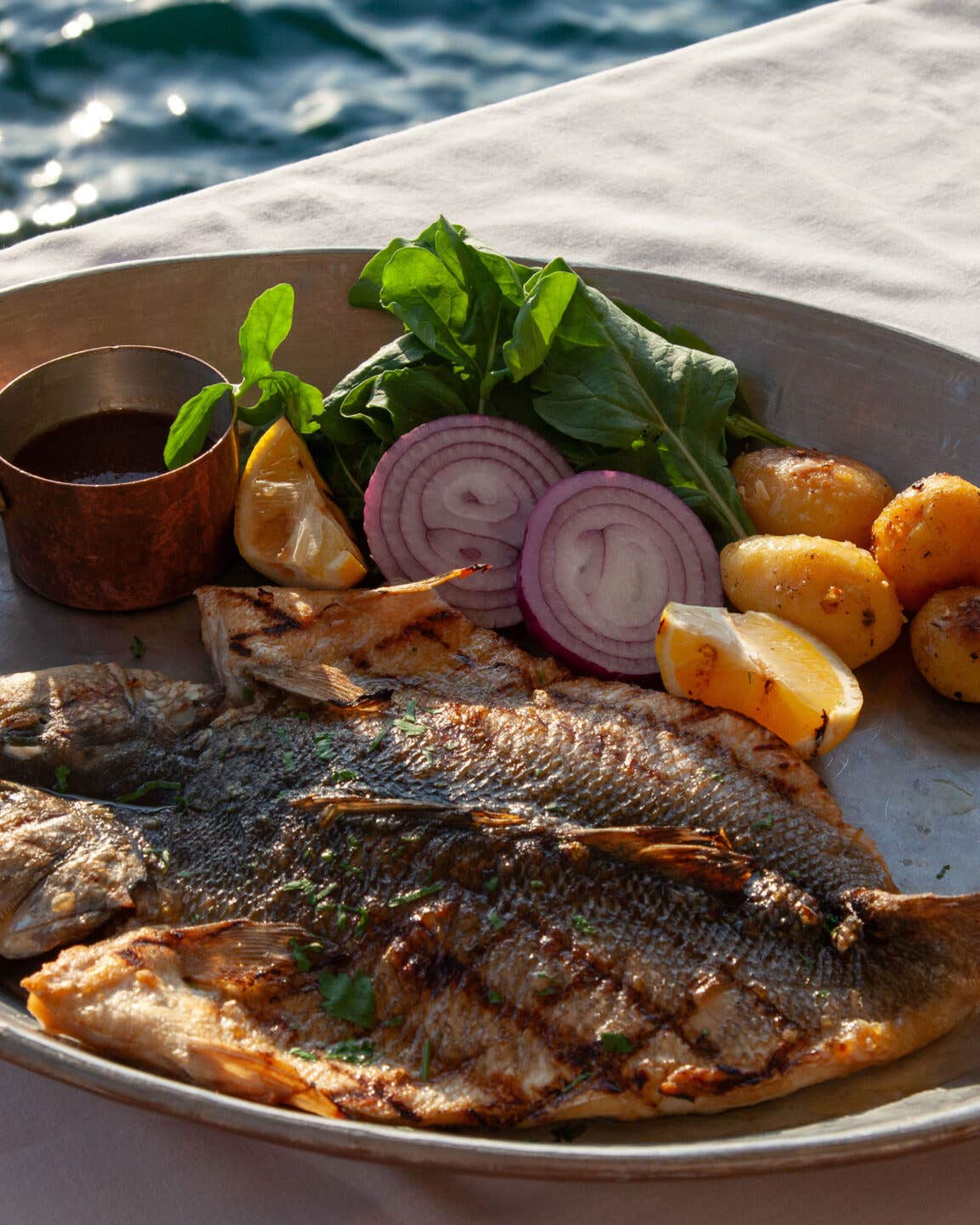Ganjang Gejang: A Dish You Only Make for Someone You Love
These soy sauce-marinated crabs require patience and a certain tolerance for risk. Worth it, says author Eric Kim of the Korean delicacy that crossed an ocean and three generations to land on his family’s Georgia table.
- Serves
serves 4-6
- Time
1 day

I’ve officially outlived my mom," my mother said to me through wine-stained teeth over a barbecue chicken pie. We were celebrating her birthday at a California Pizza Kitchen in Fulton County, Georgia—7,000-plus miles away from Seoul, Korea, where she grew up. She had just turned 49.
This scene took place a decade ago, and sticks with me still because my mom almost never mentions her mom. It’s not that the subject makes her sad, but that she barely remembers the woman who birthed her. How young do you have to be when your mother dies to forget her? In my mother’s case, 15.
The few things my mom, Jean, does recall about Grandma Gesun are vibrant fulgurations, akin to old Polaroids that somehow remain vivid. “My puppy, my puppy,” Grandma Gesun called out to an 8-year-old Jean from the bottom of the stairs, holding an aluminum lunch box of barley rice and kimchi. Judging from the actual weathered snapshots I’ve seen, Grandma Gesun was pretty, with high cheekbones, kind eyes, and a hooked nose. (I used to be jealous of my brother’s pert, straight schnoz, until our mother said mine was better because it came from a wise woman.)
My mother also told me how, in fall and winter, she and her sisters often went to the beach at Gangwon-do Province to collect baby dolgae, or rock crabs, bringing them back to Grandma Gesun, who’d drown the thumb-size shellfish in a pot of soy sauce outside the back door. Eventually, their little legs would stop moving, and their plush flesh would cure. “I remember how they felt in my mouth,” Mom says, “how their soft insides gushed out.” Much later, she’d go on to make this dish, albeit with different crabs, for her own children. The mere mention of its name, ganjang gejang, triggers my salivary glands like salted licorice.

Koreans have feasted upon gejang (roughly translated as “crab” plus “condiment”) since at least the 17th century, when live crabs were placed in earthenware crocks with raw beef—intended to plump up the crustaceans before their deaths by briny marinade. Even during my mother’s time in Seoul, nearly everyone she knew had to preserve food in salt. “If you had a refrigerator at all,” she explains, “it wasn’t very big, so you left perishables outside in the cold. Ice was a rare commodity, purchased in huge slabs, and chipped away at with a hammer and knife.” Such notions strike me as so far away, they almost seem fake. (I love envisioning my mother’s childhood as a nexus of magical realism: Gabriel García Márquez, by way of Korea.)
After Grandma Gesun died of stomach cancer, my mother continued to eat gejang, though only to celebrate special occasions, at restaurants or at parties. Crabs you didn’t scoop from the sea yourself were too expensive for every day. They were, however, bigger. The benefit of the kkotge, or flower crabs, my mother savored as a young woman involved the rich, Fanta-orange roe tucked inside the large shells. The best way to get at this salty fat? Rubbing the carapace with white rice.
Meanwhile, on the other side of Seoul, my father, Ki, was doing almost the exact same thing, dredging rice in the tomalley of soy-marinated river crabs, coal-black and hairy. Then, in 1985, Jean and Ki went on a blind date set up by mutual friends. Within a couple months, they were married and wearing matching pajamas to bed. Soon thereafter, the Kims emigrated to Atlanta, where they sired two sons, one of whom would mature into a word-obsessed crab-lover who gets a kick out of his parents' nickname for gejang: “rice killer” (because the dish is so simultaneously salty and nectarean, it’ll make you kill a bowl of rice in one sitting).

The place and time in which my parents raised me—landlocked suburban Georgia in the ’90s—didn’t allow for many authentic Korean restaurants serving raw seafood, so my mother prepared gejang at home, using fresh Maryland blue crabs we caught on fishing trips up north. “You have to use fresh crabs,” she insists, “or else your stomach will hurt.” She’s serious. So serious, in fact, that whenever she plans to serve the delicacy to guests, she’ll whip it up a day in advance, then eat a single crab to ensure there’s nothing “off” about the batch. Which might be why I’ve always felt that sharing homemade gejang is a supremely intimate act that should not be taken lightly. It’s one of those meals you only make for people you love.
I live in New York City now, where you can have any kind of food delivered, anytime. But I save the ritual of gejang—also referred to as ganjang (or “soy sauce”) gejang, to differentiate it from another variation of the dish—for trips back to Georgia. It’s my fatted calf, my prodigal-son meal.
On my most recent drive down, following 13 hours on the road, I pulled into my parents' driveway at midnight and attempted to sneak upstairs to my room. But there they were, Jean and Ki, waiting in the foyer, sleepy‑eyed in their pajamas.
My father hugged me and chanted, “My son, my son.” My mother? She scurried to the kitchen, slippers squeaking against glossy wooden floors, rushing to plate three or four soy-marinated crabs next to a mound of steamed white rice. As I rubbed the final grains into the last crab’s nooks and crannies, my mom remembered the reason I’d come home.
“Oh! Happy Birthday, Eric!”
Ingredients
- 2 cups low-sodium soy sauce
- 1 sweet red apple (such as Gala), cut into eighths
- 4 large garlic cloves, smashed
- 2 Tbsp. dark brown sugar
- 1 5-in. square of dried kelp
- 1 2-in. piece of ginger, thinly sliced
- 2 medium red onions, thickly sliced, divided
- 2 large jalapeños, thickly sliced, divided
- 2 lb. live blue crabs (10-12 medium crabs)
- 6 cups steamed short- or medium-grain white rice, for serving
Instructions
Step 1
Step 2
Step 3
Step 4
- In a large pot, combine the soy sauce, apple, garlic, brown sugar, kelp, and ginger, plus half the onions and jalapeños. Add 3 cups cold water, and bring to a boil over high heat, then lower heat and simmer for 15 minutes. Allow the mixture to cool to room temperature.
- Meanwhile, clean the crabs: Turn each crab over on its back and, with a sharp chef’s knife, pierce the center of the abdomen, slicing downward without cutting through to the top shell. Gently pull the top shell off and set it aside. Using kitchen shears, remove the eyes, antennae, and gills (the long, spongy organs) from the bottom section. Rinse both sections in a large bowl of cold water, taking care to leave the roe intact. Repeat until all crabs have been cleaned.
- Place all the cleaned crab pieces in a gallon-size jar or plastic tub (with a lid), and add the remaining onions and jalapeños. Strain the reserved soy brine into the jar or tub. Cover tightly and refrigerate, allowing the crabs to marinate for at least 24 hours and up to 2 days.
- Remove the crab pieces from the marinade and, if desired, use kitchen shears to cut the bottom sections in half for easier eating. Arrange the pieces on a platter, spoon 1-2 tablespoons of the marinade over each, then top with a few of the marinated onions and jalapeños. Serve with warm white rice, which can be rubbed into the shells to get at all of the roe and flesh.
Eric Kim (@ericjoonho), a columnist at Food52, has also taught writing and literature at Columbia University. His debut cookbook, inspired by family recipes, will be published by Clarkson Potter in 2022.
Keep Reading
Continue to Next Story
